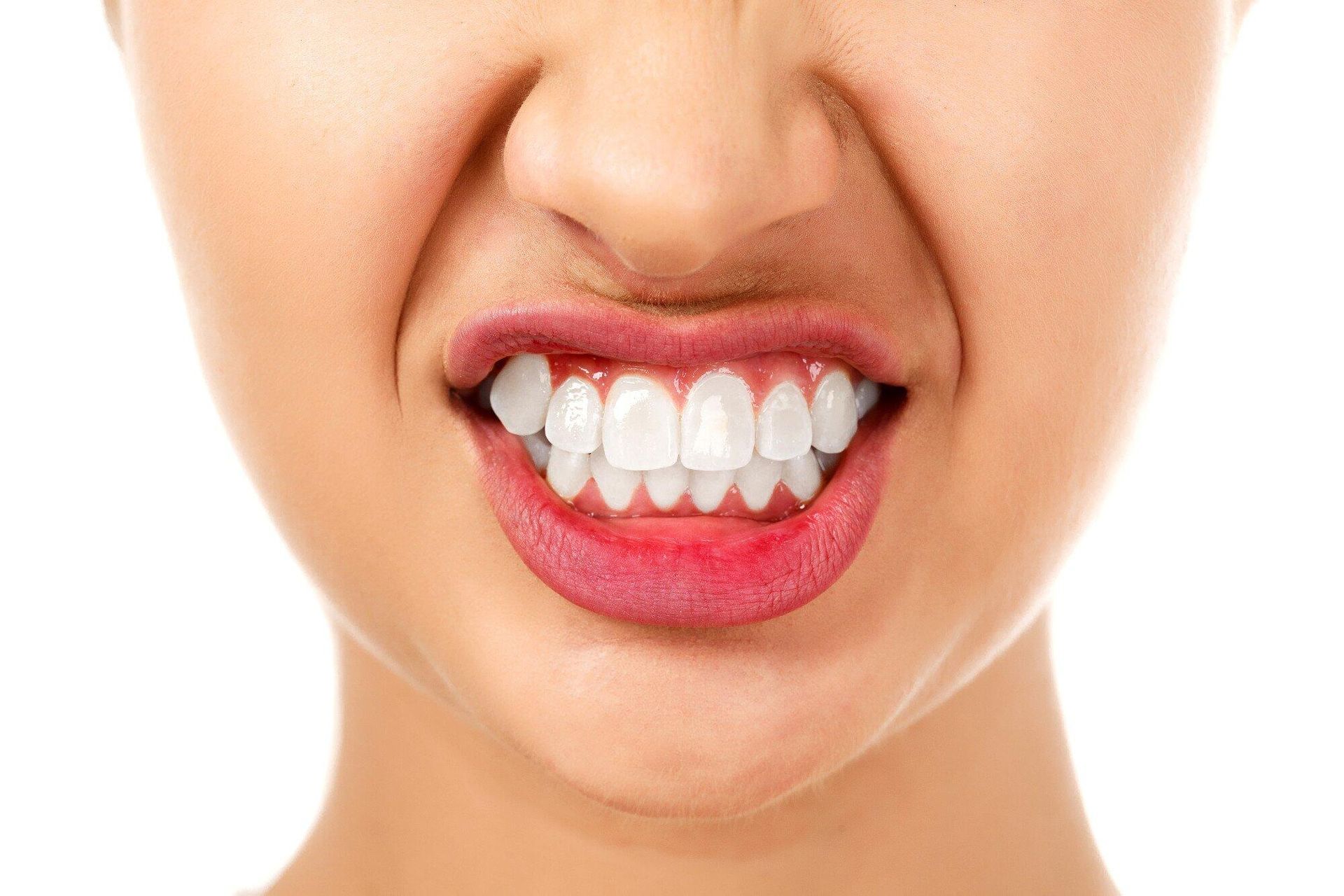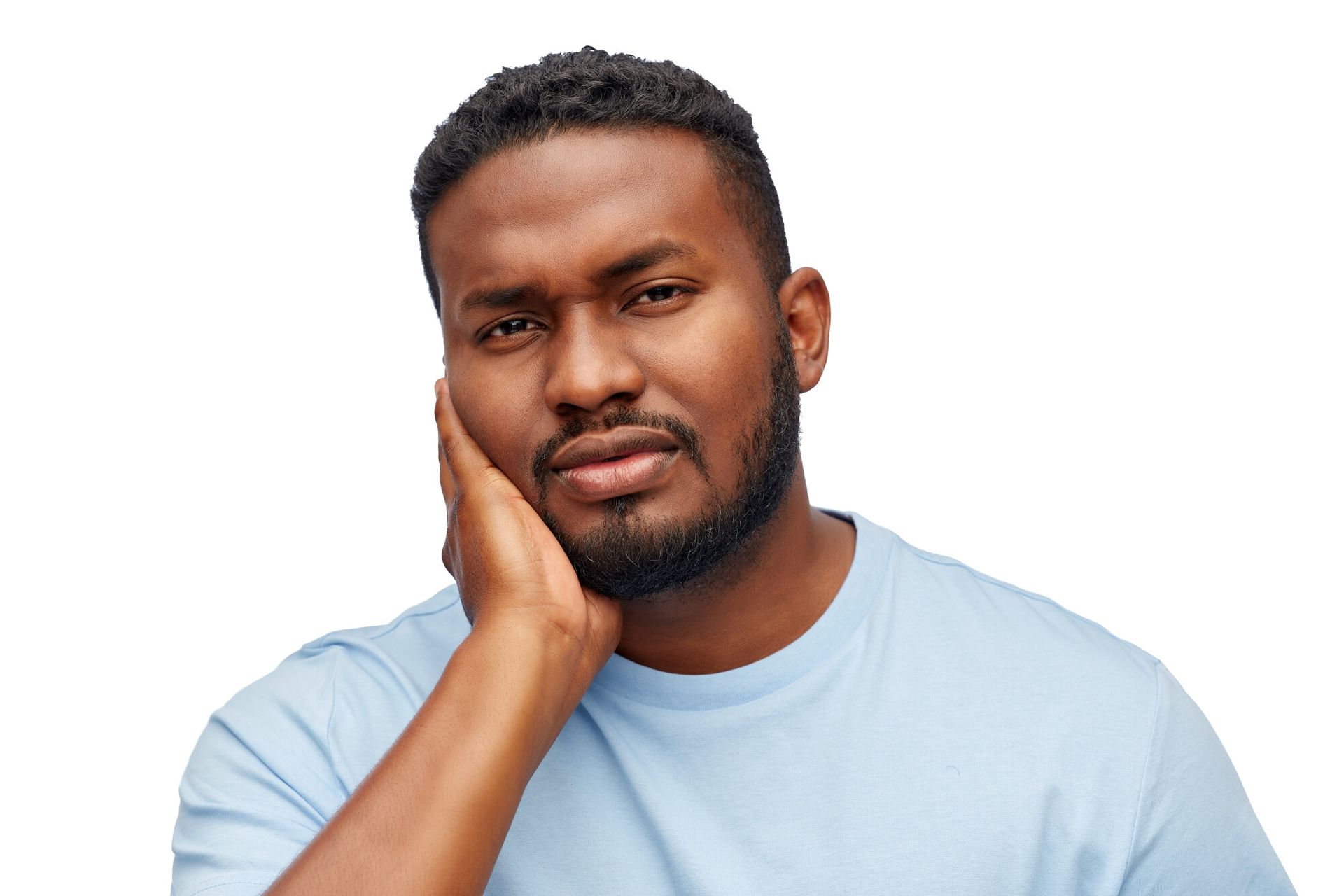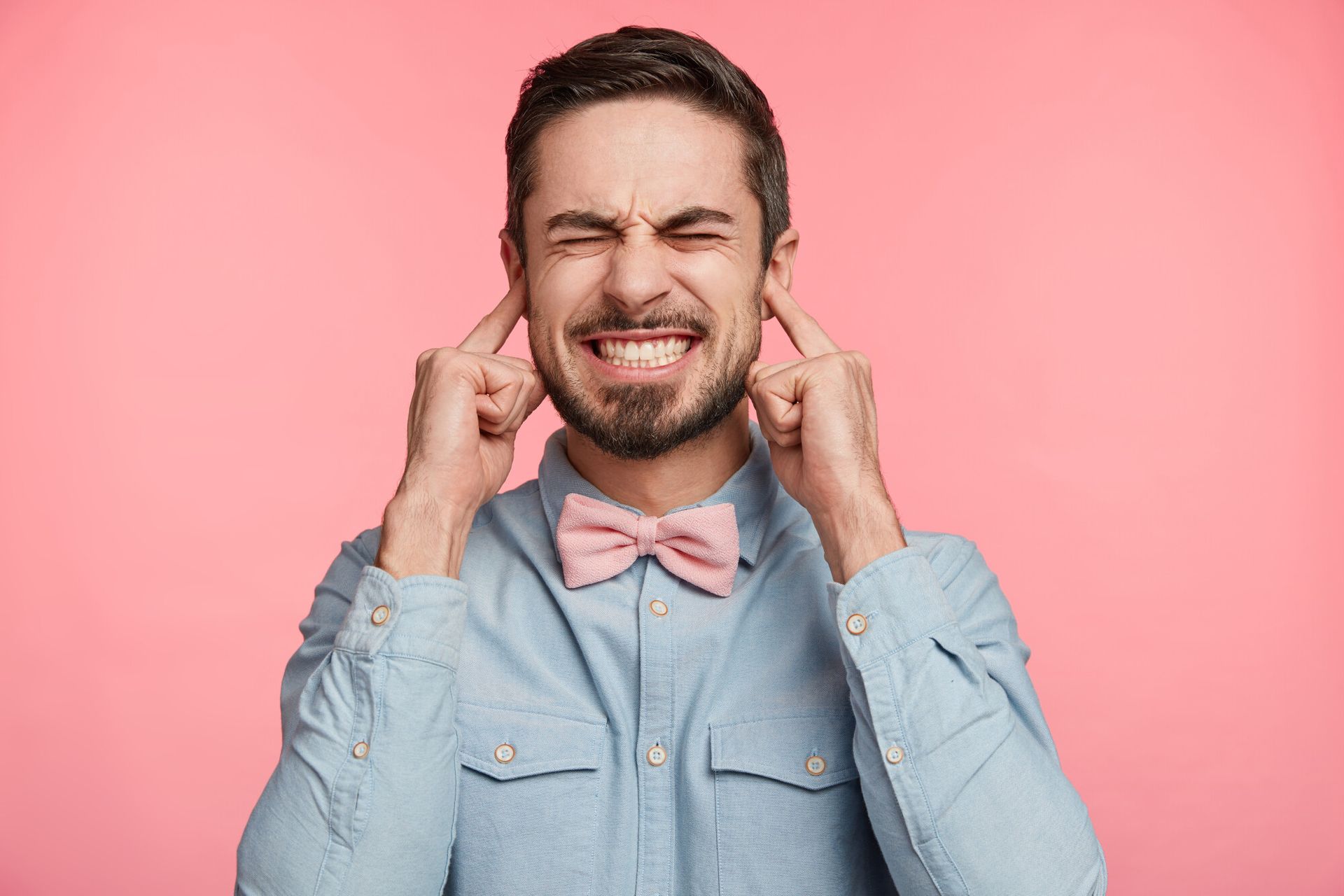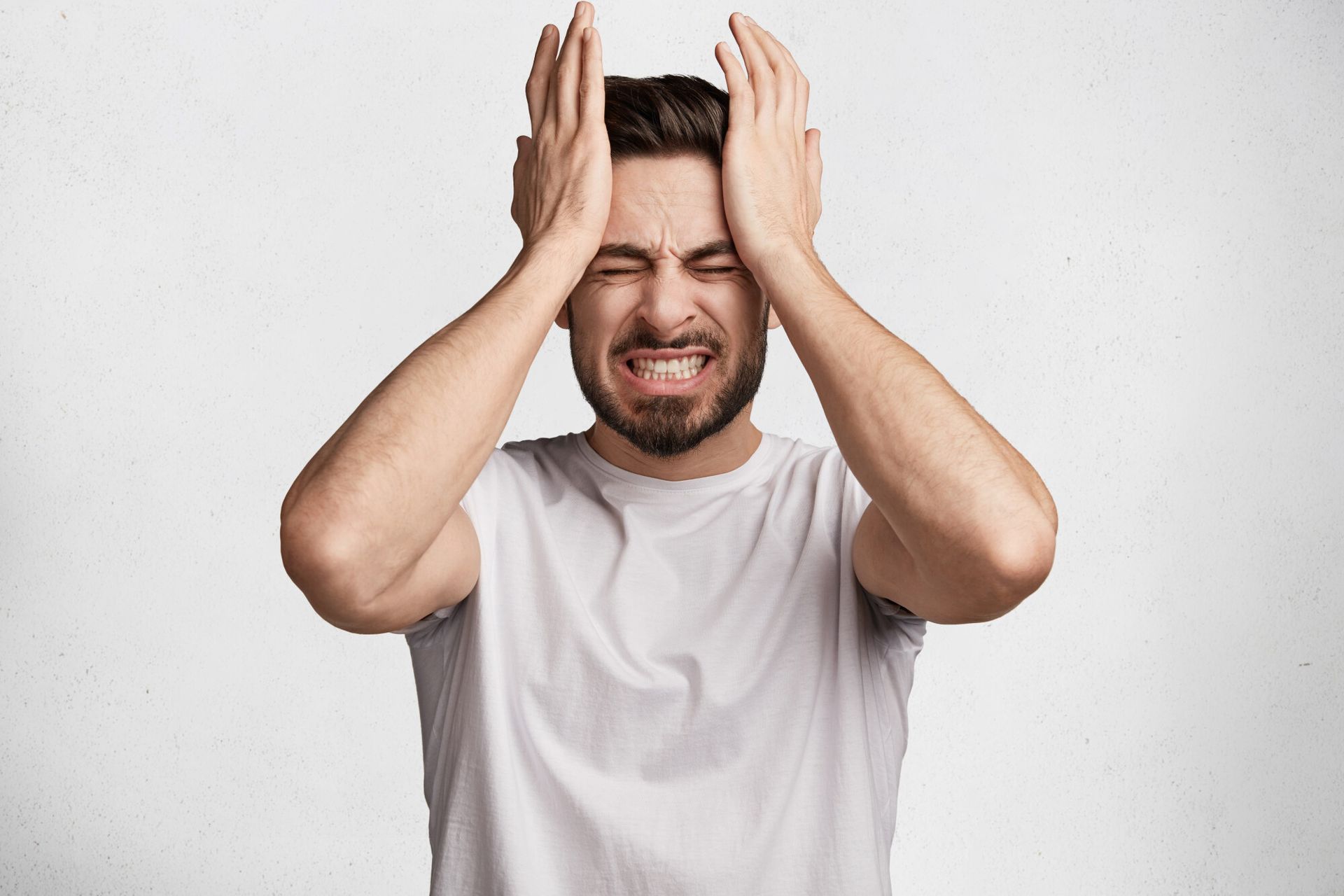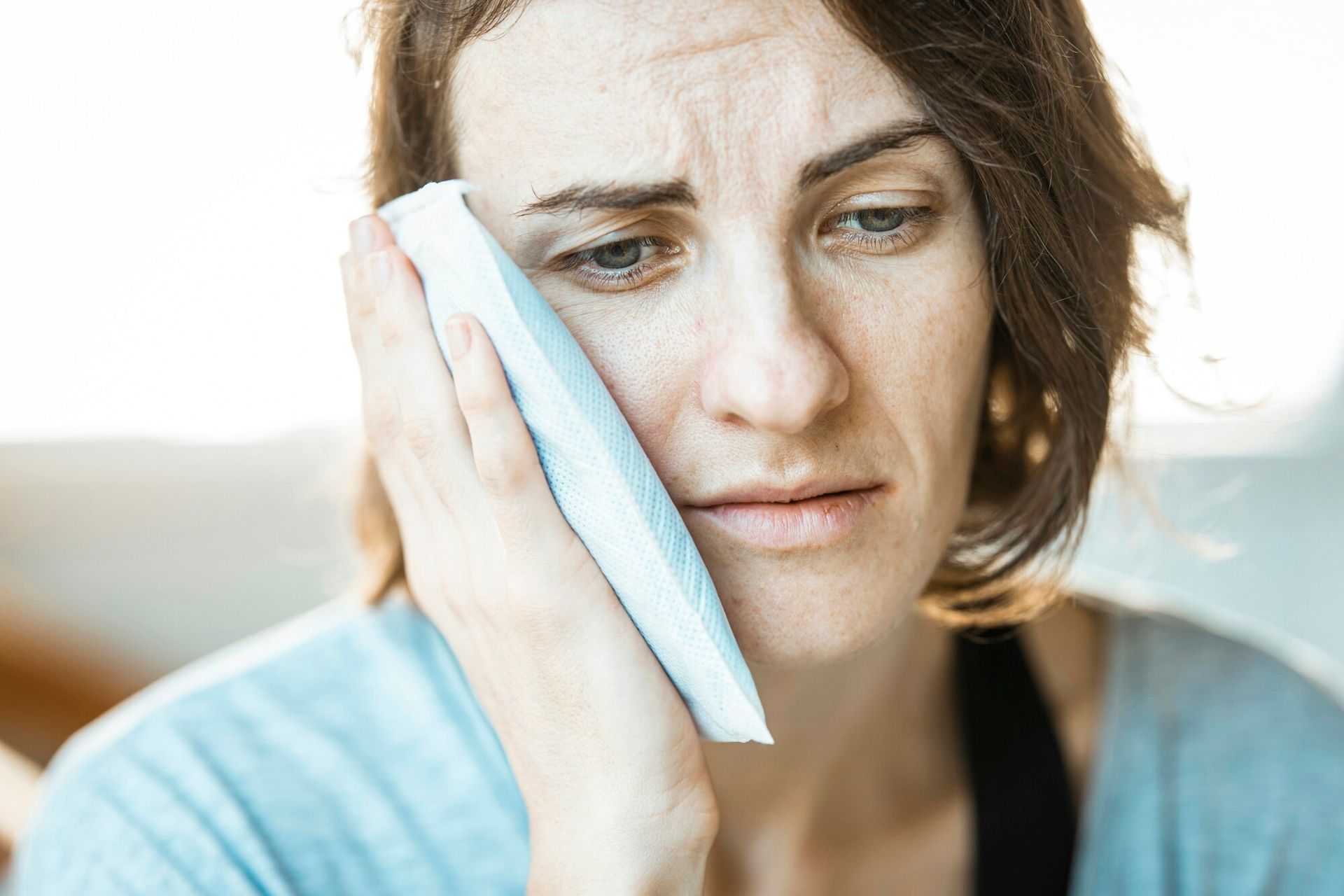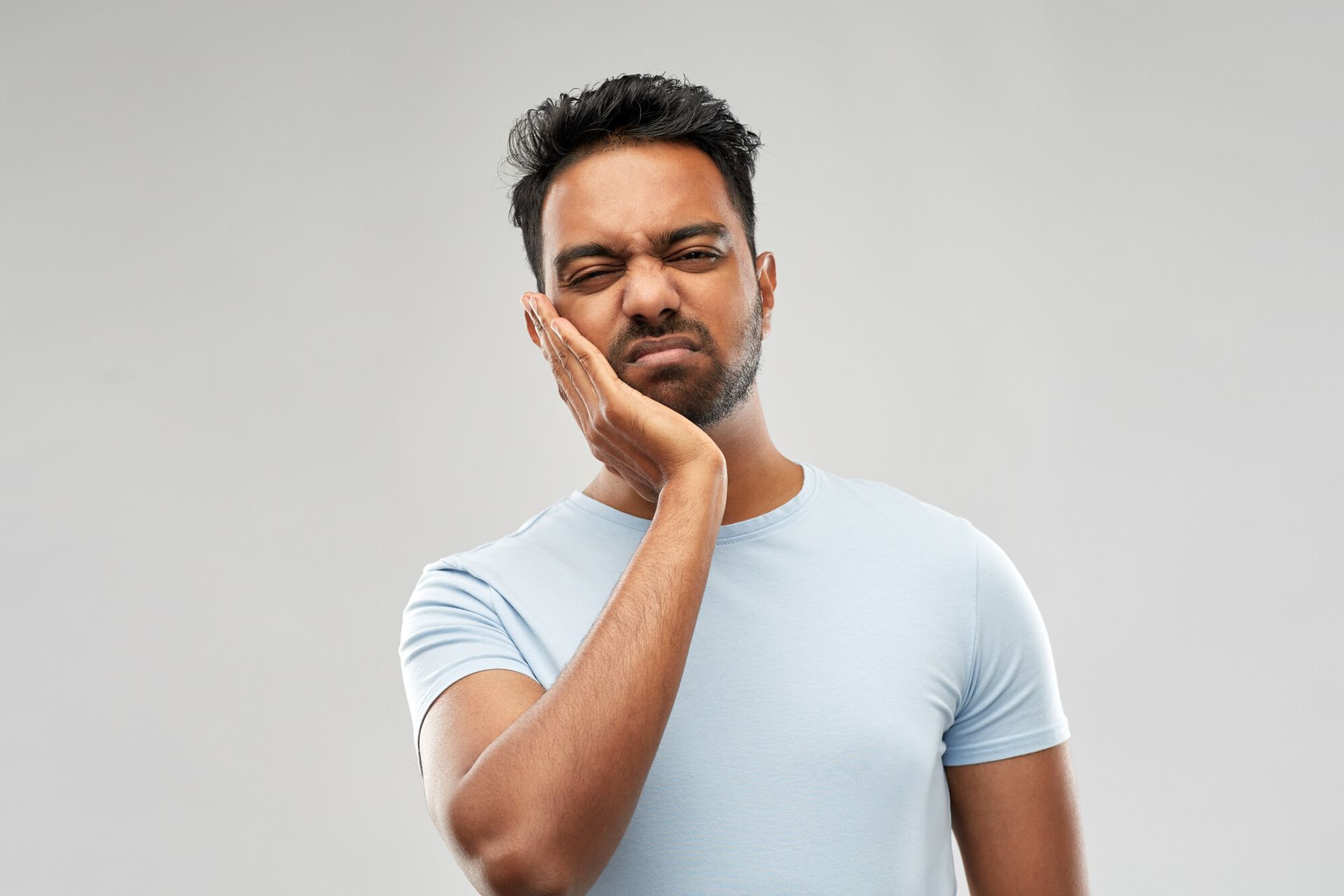Does TMJ Cause Ear Pain? A Complete Guide
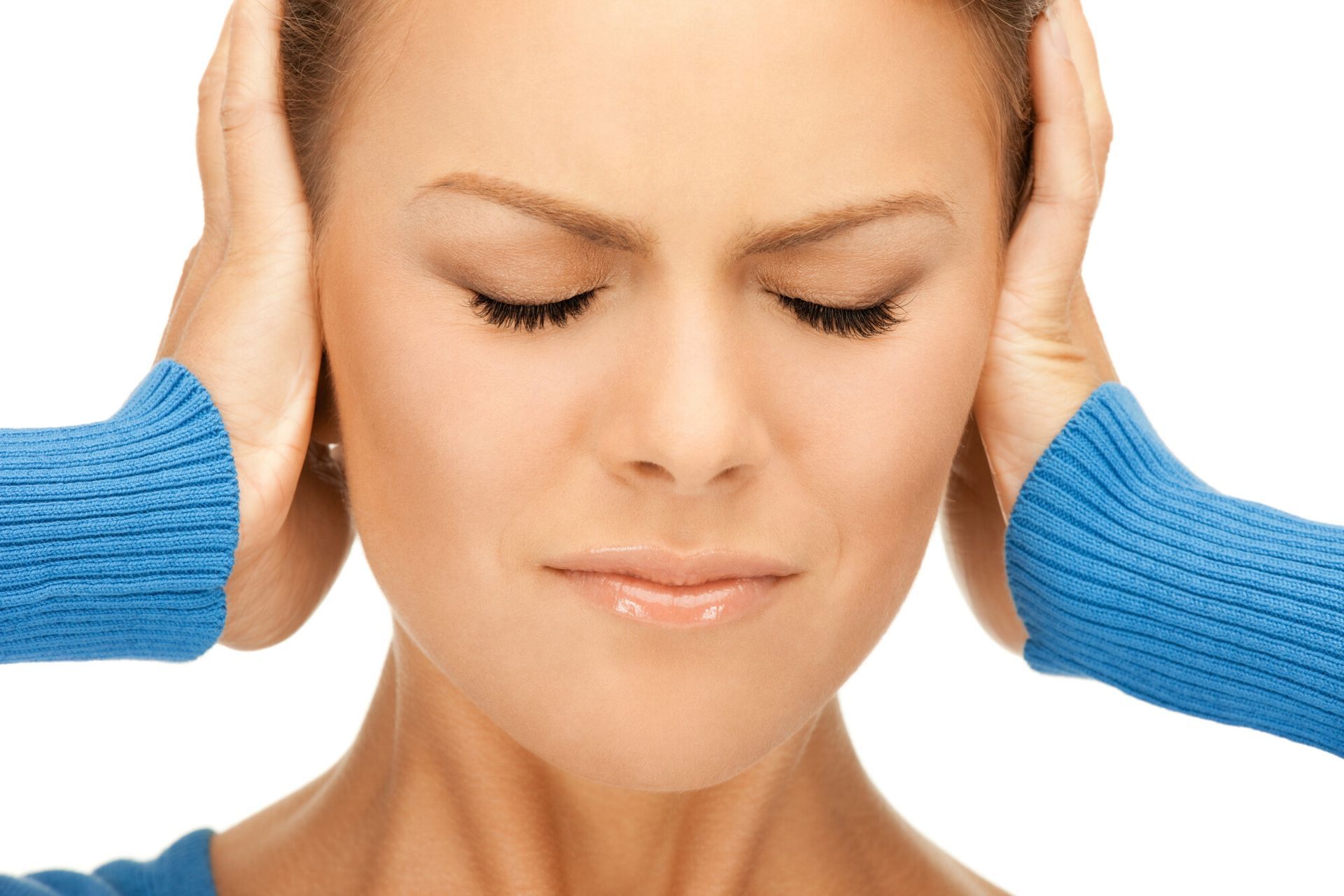
An estimated 5-12% of adults have TMJ, with the odds of developing TMJ doubling for women. TMJ can be extremely disruptive, making it difficult, painful, or even impossible to speak, chew, and yawn in comfort.
If you experience jaw pain that seems worse or more acute for several days or weeks in a row, it's time to talk to your dentist about TMJ. If you're not convinced that your jaw pain is caused by inflammation or misalignment of the jaw joint, there are a few additional tell-tale symptoms to look out for.
Does TMJ cause ear pain? While not all TMJ patients experience ear pain, it often does accompany TMJ flare-ups. Read on to learn more about the link between TMJ and ear pain, as well as other unexpected TMJ symptoms.
Why Does TMJ Cause Ear Pain?
The temporomandibular joint is the hinge that allows your jaw to open and close. It's also located less than an inch from the ear and its sensitive inner system. As a result, the problems associated with TMJ can have a direct impact on ear health, causing both pain and discomfort.
Inflammation and Swelling
During a TMJ flare-up, the temporomandibular joint becomes inflamed due to overuse, injury, or pressure. While it may seem like a function that causes more problems than it solves, inflammation is the body's response to harmful stimuli.
Inflammation can easily spread to other areas and cause pain or swelling. Because the inner ear is so close to the jaw joint, it may become inflamed during a TMJ flare-up. This swelling can cause mild to severe aching in the inner ear canal.
Tinnitus
Tinnitus is a medical condition that we once associated almost exclusively with hearing loss. Someone with tinnitus often hears a ringing or buzzing sound that no one else can hear. While tinnitus doesn't cause pain, it can cause serious agitation, especially if it interferes with your ability to focus or hear.
Emerging research shows that people with TMJ often develop tinnitus at a younger age than those without TMJ. The belief is that inflammation radiating from the jaw causes damage to the small hair cells of the cochlea, which is responsible for translating sound into something we can understand.
Clogging Sensations
If you've ever experienced a signficant elevation change, you're familiar with the sensation of ears clogging and popping. Some people also experience this sensation while sick or during allergy season. While it's not often described as painful, clogged ears can muffle sounds and create the feeling of dull pressure on the ear drums.
While some TMJ patients experience ear pain and others experience clogging sensations, the source is believed to be the same. Swelling and inflammation create pressure in the inner ear, leaving you feeling like you need your ears to pop.
Other Causes of Ear Pain
If you haven't been diagnosed with TMJ by a dental professional, it may not be in your best interest to assume that TMJ is causing your ear pain. Other possible sources of ear pain include (but are not limited to):
- Ear infections
- Ear injuries
- Sinus infections
- Throat conditions
- Tooth infections
- Wax buildup
- Allergies
For TMJ patients, ear pain is almost always present or more acute during TMJ flare-ups. If you have ear pain without pain or discomfort in the jaw, talk to your doctor about treatment options.
Additional TMJ Symptoms
While jaw pain and tenderness are the most common and problematic TMJ symptoms, there are other secondary symptoms patients may experience. Seeking TMJ treatment can make a big difference to your oral health and the overall quality of your life. Let's take a look at other secondary symptoms you may be experiencing that are associated with TMJ.
Pain Radiating in Other Areas
We've explained that the inflammatory effect doesn't often stay contained to the problematic area. As TMJ worsens or a flare-up persists, you may experience pain caused by inflammation in other parts of the face, neck, and upper back.
Radiating pain may also result from increased muscle tension in the body. For example, clenching your jaw for prolonged periods of time may cause surrounding muscles to tense up. You may also tense your muscles in response to pain and stress, leading to sore muscles in the neck and back every time your TMJ flares up.
Popping or Clicking Sounds
Do you ever notice a popping or clicking sound when you chew or yawn? For some, this is one of the earliest warning signs of developing TMJ.
While popping and clicking in the jaw doesn't always accompany pain, you shouldn't ignore it. That sound comes from a disc inside the temporomandibular joint when it shifts out of position. This shifting causes a misalignment that contributes to worsening TMJ.
Frequent Headaches
Everyone suffers from the occasional headache. People with TMJ often report frequent headaches or, in the worst case, chronic migraines.
There is still a lot to learn about the exact cause of a migraine headache, and it's not entirely clear why TMJ seems to exacerbate these severe headaches. However, if you've noticed an uptick in migraines alongside other possible TMJ symptoms, it's time to talk to your dentist.
Tooth Pain and Wear
For many patients, a misalignment of the jaw causes TMJ. For others, trying to adjust chewing habits to TMJ pain causes a misalignment. In both cases, you may start to notice pain or wear and tear of your teeth.
Though we don't often notice it, the pressure we exert when we chew is immense. Putting all that pressure on one or more teeth incorrectly can cause discomfort or even break or crack the teeth.
Call Your Burke Dentist About TMJ Symptoms
Does TMJ cause ear pain? While it isn't consistent among all patients, many people with TMJ do report ear pain or tinnitus that gets worse during a TMJ flare-up.
Don't muscle through your next TMJ flare-up on your own. Dr. Bernard Lynch, DMD, FAGD, LVIF, opened Dental Care Burke with the mission to provide the latest treatments for all of his patients, including those suffering from TMJ. Contact us today to schedule your appointment.
DENTAL CARE BURKE
Bernard W. Lynch, DMD, FAGD , LVIF
BUSINESS HOURS
- Mon - Fri
- -
- Sat - Sun
- Closed
703-705-7401
All Rights Reserved | Dental Care Burke
Website designed and maintained by Xpress, INC
